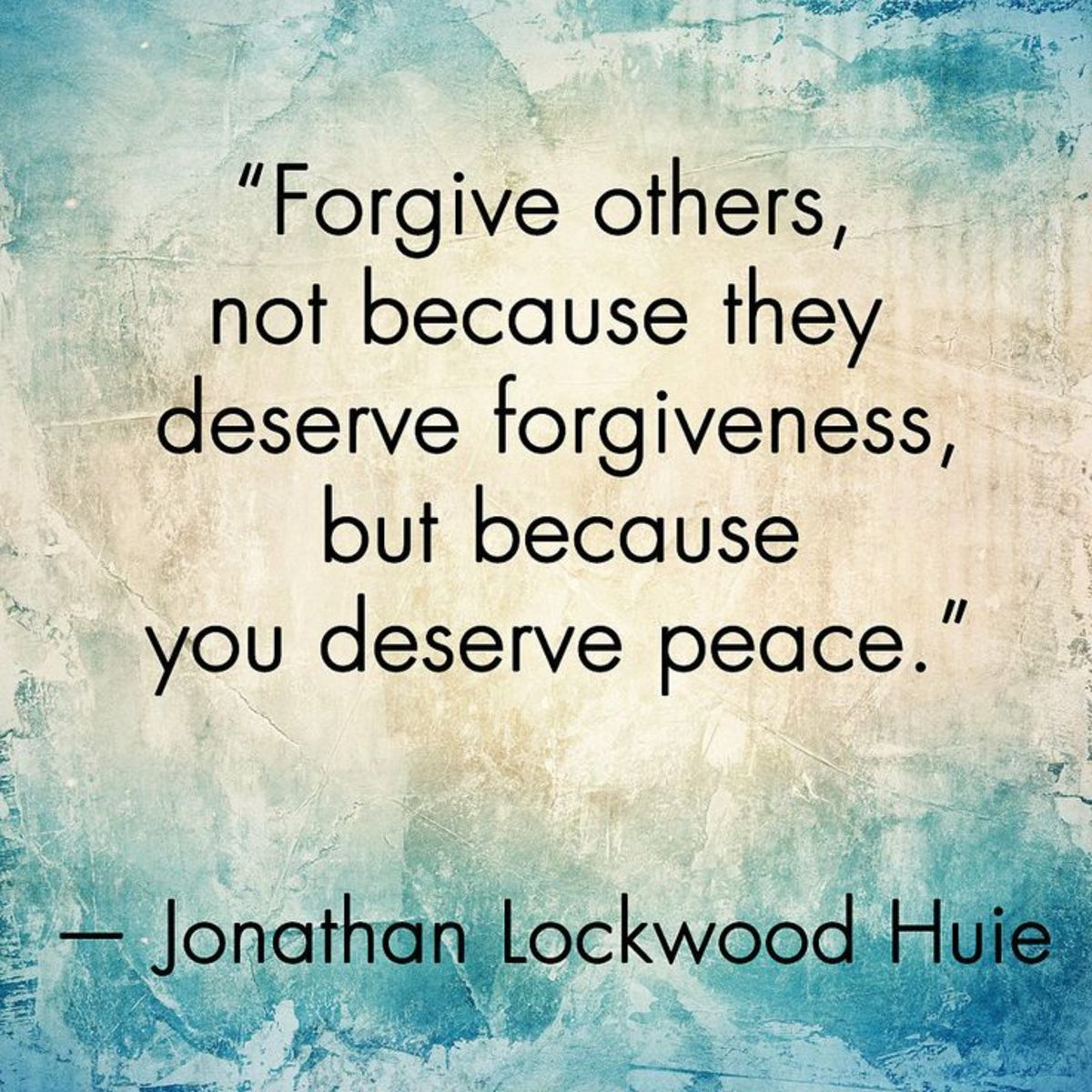How to Forgive and Give Your Relationship a Fresh Start
Forgiveness in Relationship
All married couples get angry with their spouse. Some just do it more frequently than others. The manner in which you speak to your spouse is exceedingly important. When your spouse is angry and upset uttering hash words, if you choose to show love, you will not reciprocate with additional hash but with soft voice. You will receive what he is saying as information about his emotional feelings. If you listen attentively to him, you will let him tell you of his hurt, anger, and perception of what has caused his annoyance.
After you have heard him, you should put yourself in his shoes and see the event through his eyes and then express softly and kindly your own view. If you have wronged him, you should be willing to apologize and ask for forgivingness. If your motivation is different from what he believes, you will be able to explain your motivation clearly. You will seek understanding and reconciliation, and not to prove your own perception as the only logical way to interpret what has happened. He should be able to forgive you having apologized for your wrongdoing.
After you have been forgiven you should try to act differently in future. If after asking for forgiveness, you choose justice and seek to pay back your spouse for his wrongdoing, tension will develop. Intimacy becomes impossible. If, however, you choose to forgive, intimacy can be restored. Forgiveness is the way to love. In marriage, couples must stay in a mood of continual forgiveness. They must be able to forgive every time an old offense comes back to haunt them.
If you want to travel far fast it is always advisable to travel light. So if you want your marriage to last unpack all of your envies, jealousies, unforgiveness, and revenges. In marriage, couples must continually forgive their partners for intentional offenses, unintentional mistakes, flaws and weaknesses and past hurts. Assumptions you have about your spouse’s motives or intentions that cause you to feel angry or hurt have to be forgiven. Without forgiveness, life is governed by an endless cycle of resentment and retaliation.
To forgive means to give up resentment against your spouse or the desire to revenge; and to stop being angry with your spouse. It is not a one-time event. ‘Then Peter came to Him and said, “Lord, how often shall my brother; sin against me, and I forgive him? Up to seven times?” Jesus said to him, “I do not say to you, up seven times, but up to seventy times seven.”’(Matthew 18:21-22).
Forgiveness is obligatory. We have been forgiven our sins by God; therefore, we must forgive others who have sinned against us. Ephesians 4:32 says, “And be kind to one another, tenderhearted, forgiving one another, even as God forgave you.” Forgiving is not easy. It may require continued perseverance, a daily overcoming of great pains, and a constant effort to keep moving away from bitterness.
Matthew 6:14-15 says, “For if you forgive men when they sin against you, your Father will also forgive you. But if you do not forgive men their sins, your Father will not forgive your sins.” When you forgive your spouse, you give the chance to turn a new leaf and become a better person. When you choose to let go bitterness and resentment toward your partner, even if you think you have a right to feel that way, you are creating avenue for emotional intimacy. By so doing, you have given him chance to make new choices and better ones.
John Mason wrote: “Forgiveness releases you and creates freedom. One of the secrets of a long and fruitful life is to forgive everybody everything every night before you go to bed. Forgiving those who have wronged you is a key to personal peace. It is far better to forgive and forget than to hate and remember. Unforgiveness blocks blessings, forgiveness releases blessings.”
Tremendous healing takes place when you extend forgiveness to others. When you fail to forgive, you are the one who carry a heavy burden on your heart. Bitterness and anger keep you living in the past, causing you to become stagnant in your journey along the road of life. Forgiveness and love, on the other hand, allow you to live in the present and move forward into a life of productivity and victory over negative emotional stress.
It will be beneficial if you can resolve every time you are offended thus: “Even though my feelings of hurt still linger, I will not allow this incident to come between us. I hope that we can learn from this experience and move on from here.” Forgiveness will not change the past, but it will enlarge and brighten the future. Ruth Bell Graham wrote, “A good marriage is the union of two good forgivers.”










